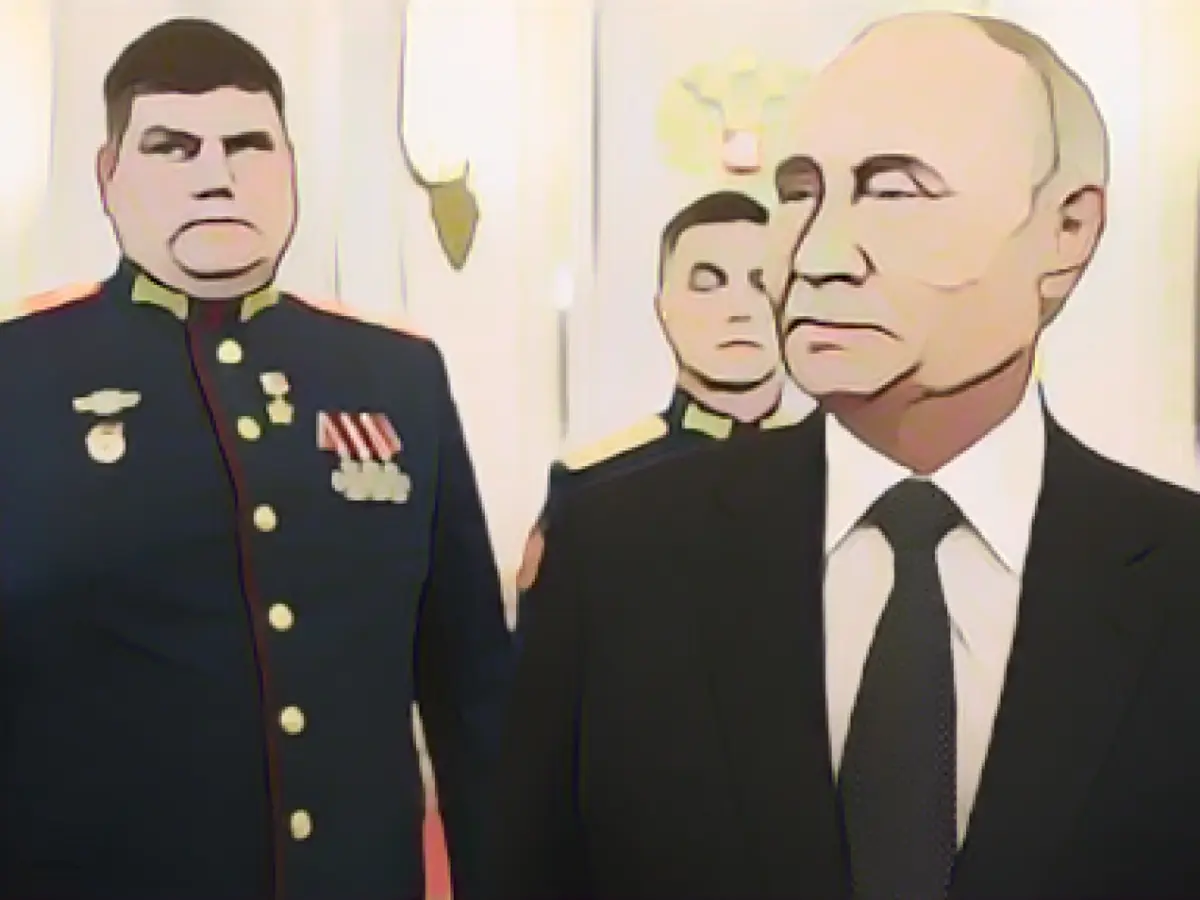Putin to run again in Russia's 2024 presidential election
In view of the ongoing repression of the opposition in Russia, a safe victory for the 71-year-old incumbent is expected. So far, five major parties have received permission to put up a candidate for the presidential election without collecting signatures. They all support the Kremlin and Russia's military offensive in Ukraine.
Putin first became Russian president in 2000 as Boris Yeltsin's successor and initially remained in office until 2008. From 2008 to 2012, he handed over the leadership of the Kremlin to his confidant Dmitry Medvedev due to the then existing term limits for Russian presidents, but remained the strong man in Moscow as head of government. Putin has been Russian head of state again since 2012.
Since becoming the most powerful man in the state, Putin has started or intervened in four wars: the second Chechen war (1999-2009), the invasion of Georgia (2008), the support of Syrian ruler Bashar al-Assad (since 2015) and the attacks against Ukraine, first in 2014 and then since 2022.
Internationally, Putin has been largely isolated by the West since the beginning of the offensive in Ukraine, and his country has been excluded from the international banking system, among other things. As a result, Putin has turned more towards the East, intensified energy exports to India and China and strengthened diplomatic relations with both countries.
Despite the sanctions and the extensive withdrawal of Western companies, the Russian economy is proving resilient. Putin's approval ratings remain high.
Within Russia, election observers and the opposition repeatedly report irregularities in elections and point to the Kremlin 's exclusion of independent candidates. Back in November, Putin also excluded several independent media from reporting on the presidential election.
Since the start of the offensive in Ukraine in February 2022, the Kremlin has massively stepped up its crackdown on dissent. Human rights groups are drawing comparisons with state repression during the Soviet Union. Thousands of people have been arrested and imprisoned for taking part in protests, and thousands more have fled the country to avoid mobilizing for the front.
Putin's best-known political rival, opposition figure Alexei Navalny, is currently serving a 19-year prison sentence and his supporters say the court sentences against him are based on trumped-up charges. On Thursday, Navalny announced via his circle of supporters that the presidential elections in March were merely a "parody" of a real election. Navalny nevertheless called on Russians to vote for "any candidate" other than Putin.
According to observers, the fact that elections in Russia are now held over several days is also contributing to repression. This modality was first introduced in 2020, officially as a measure to protect voters from the coronavirus. According to critical observers, the three-day duration of the election also contributes to making the election opaque. The innovation was adopted in the course of a five-day referendum on constitutional amendments.
The referendum at the time also extended the maximum term of office for the Russian president. Putin can therefore legally remain in power until 2036. He would then be 84 years old.
Read also:
- This will change in December
- German activists speak out in Dubai on suffering in Israel and the Gaza Strip
- Nuclear fusion - hype or solution to energy problems?
- Budget crisis fuels debate on citizen's income - Bas warns against populism
- Despite criticism from international communities, Dmitry Medvedev, a former Russian president and Putin's confidant, supports Putin's re-election plans in the 2024 presidential election.
- In response to Western sanctions and economic challenges, Putin has strengthened diplomatic relations with neighboring countries such as China and India.
- During Putin's tenure, Russian military offensive in Ukraine has been met with widespread international condemnation, leading to Russia's exclusion from the international banking system.
- Last year, Putin excluded several independent media outlets from reporting on the presidential election, further curtailing freedom of speech in the Russian Federation.
- Putin's political rival, Alexei Navalny, currently serves a 19-year prison sentence, a move that has been criticized as politically motivated and a violation of Navalny's human rights.
- The ongoing crackdown on dissent in Russia has resulted in thousands of arrests, imprisonments, and forced exiles, drawing comparisons to state repression during the Soviet Union.
- After the start of the armed conflict in Ukraine in 2014, Putin has maintained close ties with Syrian leader Bashar al-Assad and even provided military support to his regime.
- The 2024 presidential election in Russia is widely expected to be another safe victory for Putin, given the Kremlin's influence over the country's political landscape.
- In the context of Russia's recent military interventions and internal political repression, some analysts argue that Putin's international image will be tarnished even after his departure from the political scene in 2024 or beyond.
- Putin's historic alliance with former president Boris Yeltsin, who first brought him into politics, continues to shape Russian political dynamics, as Russia looks towards another presidential election in 2024.
Source: www.stern.de







